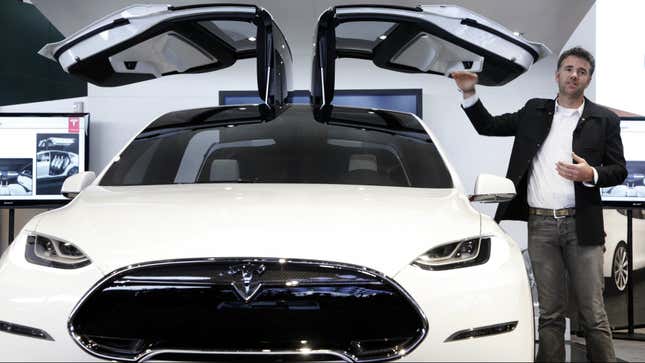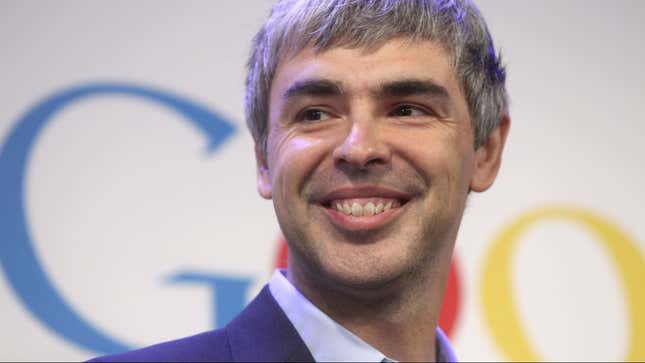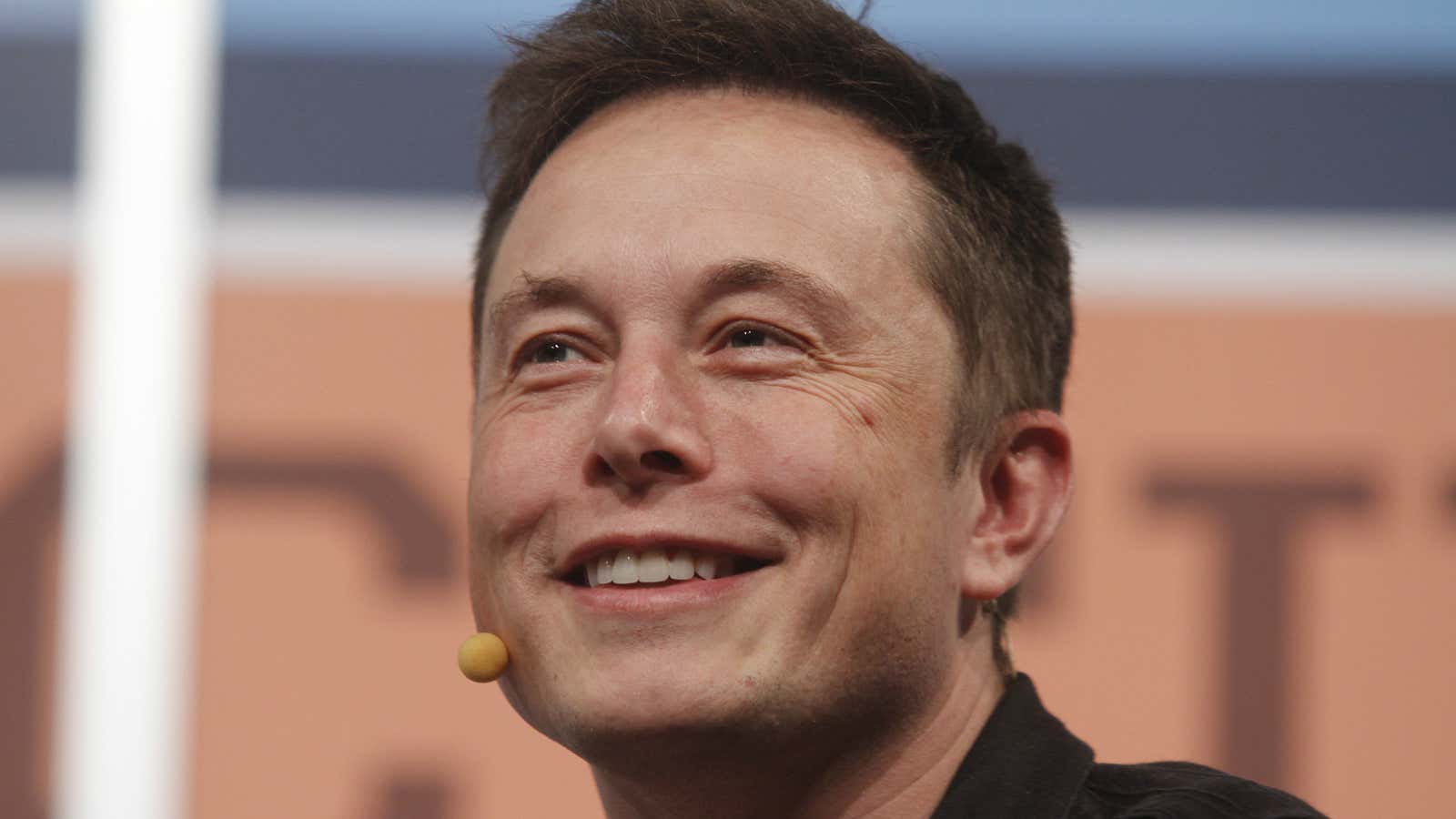A blockbuster deal to sell Tesla Motors to Google fell through in 2013 when a shift in fortunes gave Elon Musk his confidence back, and he called off the agreement, according to a new book.
But the Tesla CEO’s initial instincts were right: A sale of his cherished electric car company to a sympathetic and deep-pocketed company like Google would have been a shrewd move. And it still is today.
The talks go back to March 2013, when sales of the Tesla S were uncertain and Musk was worried about bankruptcy, according to the forthcoming Elon Musk: Tesla, SpaceX and the Quest for a Fantastic Future, by Bloomberg reporter Ashlee Vance. Bloomberg published an excerpt yesterday.
Musk called Google CEO Larry Page, Vance writes, and they agreed on the outlines of a deal selling Tesla for $6 billion in cash, with Google providing another $5 billion in investment for development and factory expansions. The deal would have allowed Musk to stay on through the launch of a mass market electric car.
In a Bloomberg video, Vance said that the Google deal no longer makes sense because Musk doesn’t need the money or “a savior.” And Vance has a point: Tesla’s financial health and prospects are much better than during those dark days, when Musk did not know how many Model S cars he would actually sell.
But Musk’s resolve to see through his attempt to create a global electric car behemoth on his own terms involves a lot of risk, including the gamble that investors will continue to play along with what strongly resembles a dotcom-era strategy for another five years.
Everything looks peachy … until it doesn’t

Most analysts have a buy rating on Tesla shares, with a consensus price 25% higher than the $205.27 mark where they closed yesterday. The company is set to unveil at least two big products this year—stationary batteries for homes and small businesses, and the Tesla Model X, a seven-passenger crossover SUV. Both have Musk fanatics such as this analyst panting.
But will the Musk show continue, as he and his advocates appear to be presuming?
Musk is spending a lot of time these days cooking up announcements that seem aimed at maintaining Tesla’s share price. His tweets and other promotional methods have helped to swell his company’s capitalization to about the same as Porsche’s, whose cars are arguably as cool as Musk’s, except that it sold 189,850 vehicles last year—that’s six times Tesla’s 31,655 vehicle deliveries.
The standard argument justifying the company’s astronomical share price is that the Tesla is less a car and more a tech smörgåsbord on wheels. But we’ve heard the suggestion of a “paradigm shift” before—quickly followed by the dotcom, real estate and Wall Street busts. And a growing number of analysts are now grasping that, notwithstanding the Tesla’s effortless software downloads, it manufactures cars, and as of now only cars, and thus is in fact a car company. Among the most recent to highlight this point is JPMorgan, which, in a note to clients yesterday, forecast a 20% plunge in Tesla’s share price, to $165 (which would still be superlatively high.).
Google seems the biggest beneficiary, but Musk would gain most

Back to Vance’s scoop. It’s true that a deal involving Tesla and Google today makes most sense for the latter: Neither Page nor his co-founder Sergei Brin are content to create only software and cool devices. Page in particular sees himself as a visionary who can solve problems on a scale that makes the world a better place.
And perhaps no area of study within Google has more world-saving potential than energy—specifically electrification. But how to make the biggest splash possible? How about by twinning Google’s leading advances in autonomous driving with Tesla’s leading car design and engineering, and together capturing the future of automobiles? And doing so much more rapidly than the five years that Google says it will take before its own autonomous cars are on the road? That should feed Page’s appetite for visionary accomplishment for some time.
For Tesla, the upside to a deal would include not only Google’s technology, reach and sizzle, but its $65 billion in cash. By Musk’s own description, Tesla will be borrowing money through at least 2020, when he reckons the company will finally turn a profit. That includes the pricetag of his $5 billion “gigafactory,” the enormous lithium-ion battery plant at the core of Musk’s claims to reshaping the mass automobile market starting in 2018. Moreover, Musk is already talking about building a second gigafactory in Japan. Musk needs access to cash, and lots of it.
All will probably go well as long as Musk’s tweets maintain Tesla’s share price and allow him to raise money at low interest rates. That is a risk, though. There simply is no guarantee that Musk’s good fortune will last through 2020 and beyond, especially if he doesn’t turn a profit.
He would lose little in the way of respect and gain much in the potential for success by getting Page back on the phone to talk business. Now would be a good time to make that call.




